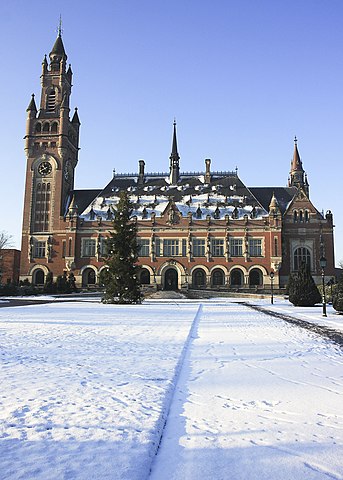
Why doesn’t the U.S. prosecute its war criminals? This has been on my mind for a long time, and I’m reminded of it anew after seeing Donald Trump’s threat to prosecute/jail Hillary Clinton should he become president, not to mention the chants of “Lock her up” at Trump rallies.
One bulwark against fascism in the U.S. has been our cultural adherence to “insure domestic tranquility” in the preamble to the Constitution. That adherence has in turn become part of our political culture. In particular, elections in the U.S. are ways to change leaders and policies without violence; unlike in other countries the winners in the U.S. are not expected to threaten to jail or execute the losers. Or prosecute them by bypassing the presumption of innocence. Absent these protections, history shows that not only leaders but also their followers leap to civic violence when elections do not turn out as they like.
It may be true that we carry the political custom of insuring domestic tranquility too far. I’d certainly like to see the U.S. join the International Court of Justice. I’d like to see Henry Kissinger, for example, brought before it. But as a matter of justice, not the result of an election.
So of all the things I don’t like about Trump’s candidacy, the one that’s most frightening is that a great deal of his constituency seems to believe that the fascism embodied in his statements to jail his opponent is OK. I hope that this doesn’t turn out to be an eerie replay of the destruction of the Weimar Republic. I don’t usually panic by claims that, say, electing a warmongering president will destroy the country; the country seems to get through these things, at least domestically. But now I worry that even if Trump fails, what will those fellow citizens who agree with him do? And what should reasonable citizens do to discourage the dangerous extremism of Trump and his excitable followers, who after all are our neighbors?
———-
Ed Agro, an occasional contributor to Engaging Peace, is administrator of the online war tax resisters online forum wtr-s. The above essay is a slightly edited version of the one that recently appeared in that forum.


